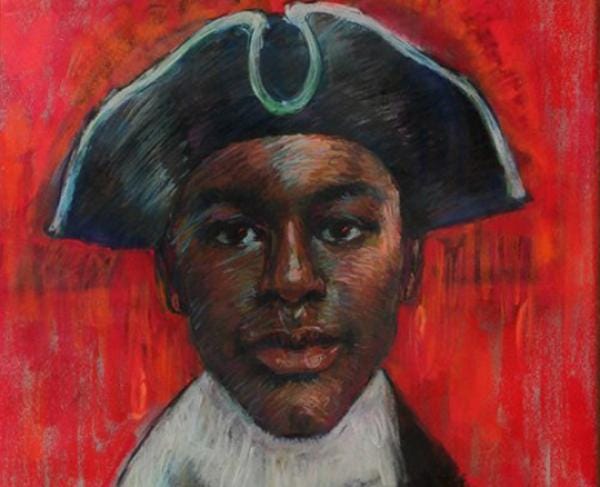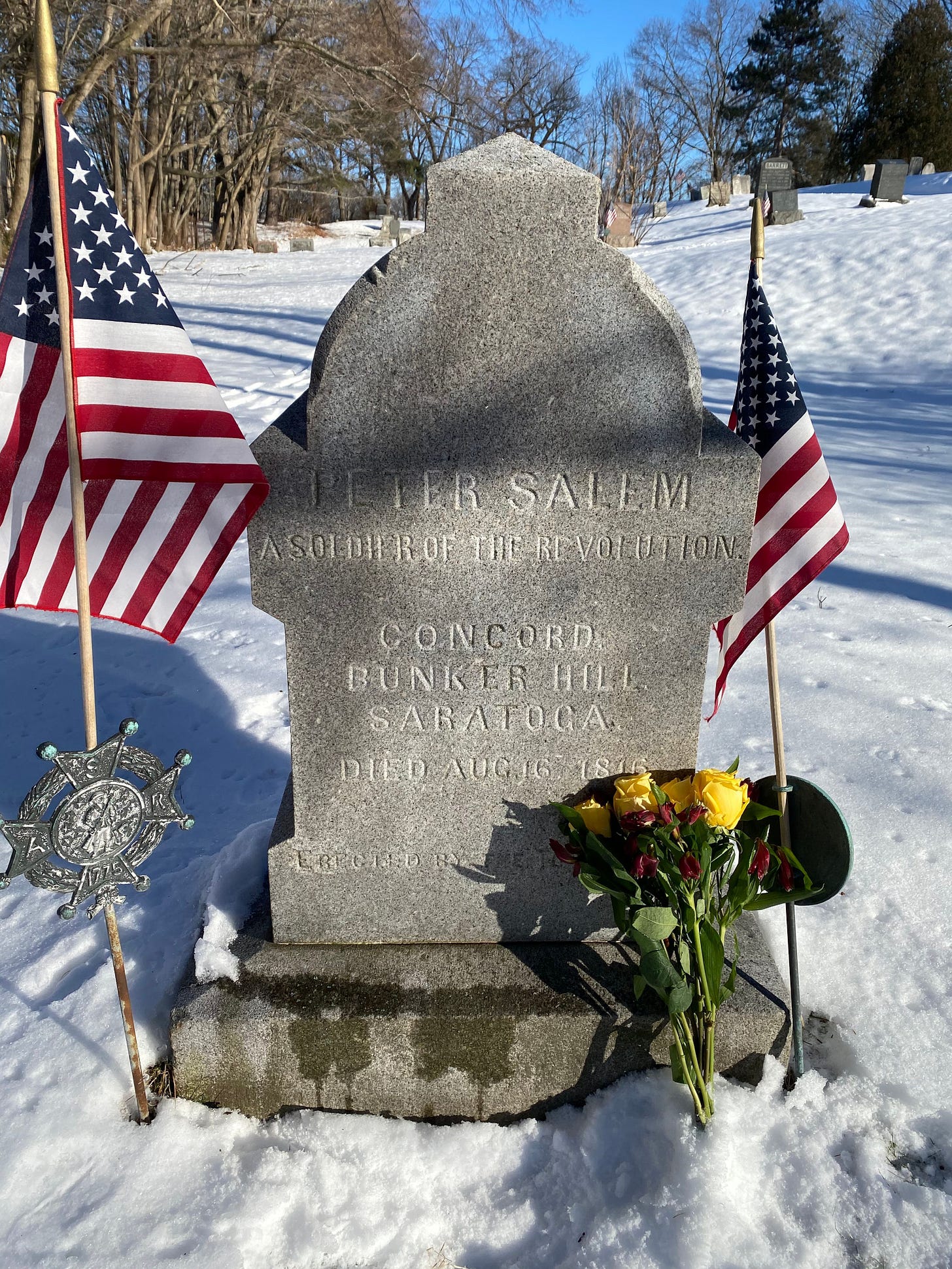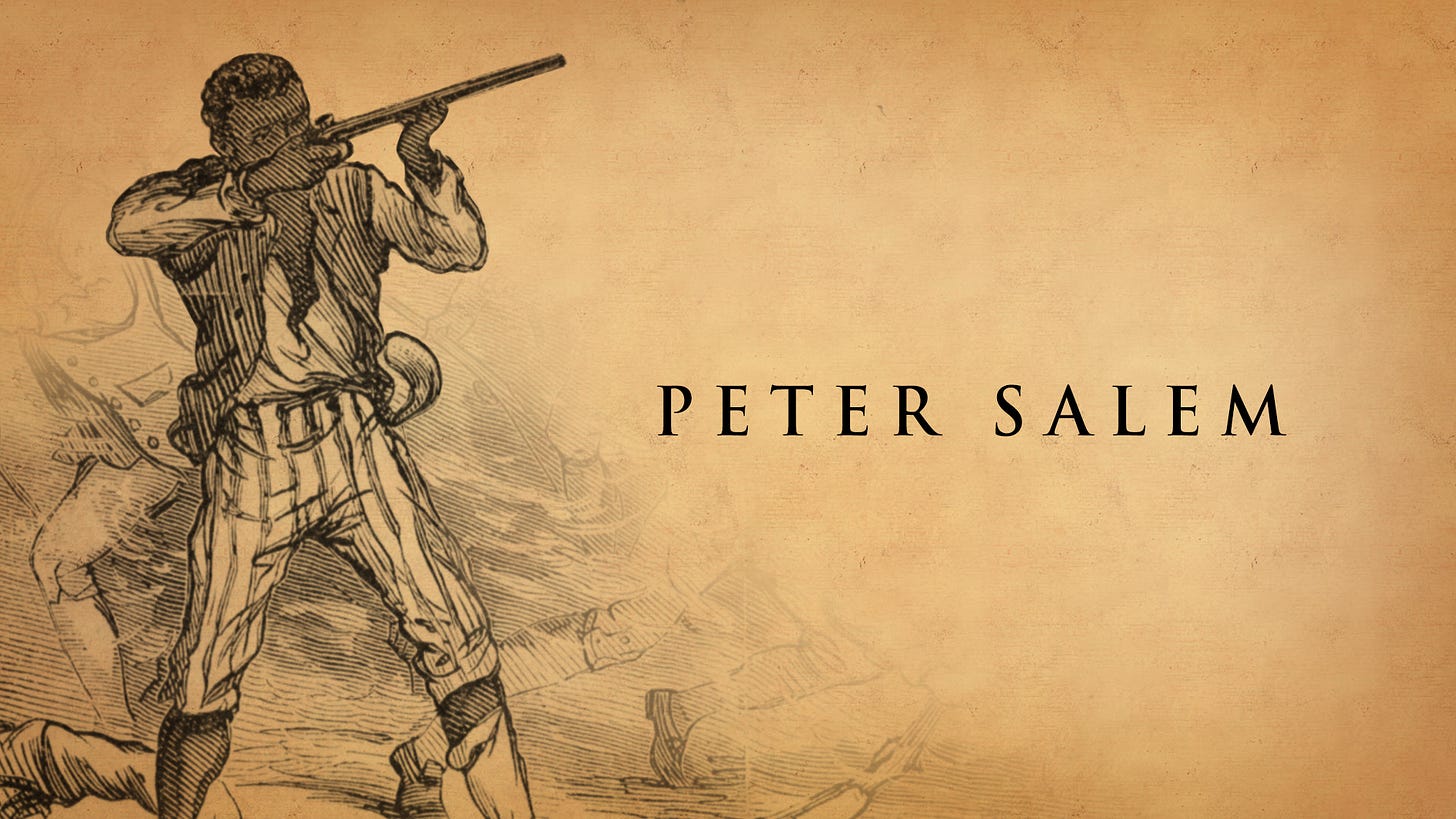Peter Salem
~ A Patriot’s Legacy
Peter Salem, a name not widely recognized, stands as a symbol of bravery and resilience in American history. Born into slavery in Framingham, Massachusetts, around 1750, Salem's journey from enslavement to a celebrated hero of the Revolutionary War exemplifies the complex and often overlooked contributions of Black Americans to the nation's fight for independence.
Early Life and Enslavement
Salem's early years were marked by the harsh realities of slavery. He was owned by Jeremiah Belknap and later sold to Lawson Buckminster. However, his life took a significant turn when Buckminster, recognizing the growing unrest and the looming conflict with British forces, granted Salem his freedom in exchange for his service in the Massachusetts militia.
The Battle of Bunker Hill
Peter Salem's most notable contribution came during the Battle of Bunker Hill on June 17, 1775. This pivotal battle saw colonial forces attempting to fend off British troops in Charlestown, Massachusetts. Despite being outnumbered and less equipped, the colonial militia fought valiantly. Amidst the chaos, Salem distinguished himself by killing British Major John Pitcairn, an action that arguably altered the course of the battle.

Major Pitcairn had managed to reach the redoubt, a key defensive position, and was rallying British troops when Salem's decisive shot struck him. This act not only demonstrated Salem's courage but also provided a significant morale boost to the American forces. His heroism was acknowledged by several officers and was depicted in John Trumbull's famous painting of the battle, ensuring that Salem's legacy was visually immortalized.
Post-War Life
After the war, Peter Salem lived in relative obscurity. He faced the same struggles many Black veterans did—limited recognition and economic hardship. Despite his contributions, he worked various jobs to sustain himself. Salem settled in Leicester, Massachusetts, where he married and lived until his death in 1816. He was buried in the Old Burying Ground, and his grave remained unmarked until much later when efforts were made to honor his memory appropriately.
Legacy and Impact
Peter Salem's story is a testament to the integral role Black Americans played in the founding of the United States. His bravery at Bunker Hill challenges the narrative that Black Americans were mere bystanders in the fight for independence. Instead, Salem and many others were active participants who fought for the same ideals of freedom and justice that inspired the Revolutionary War.
Salem's legacy serves as a reminder of the contributions of Black patriots, often marginalized or forgotten in traditional historical accounts. By recognizing figures like Peter Salem, we gain a more inclusive understanding of American history—one that acknowledges the diverse individuals who shaped the nation's early years.
Today, efforts to honor Peter Salem include educational programs and historical markers that highlight his role in the Revolution. His story encourages ongoing discussions about the contributions and sacrifices of Black Americans throughout history, ensuring that their legacies are remembered and celebrated.




